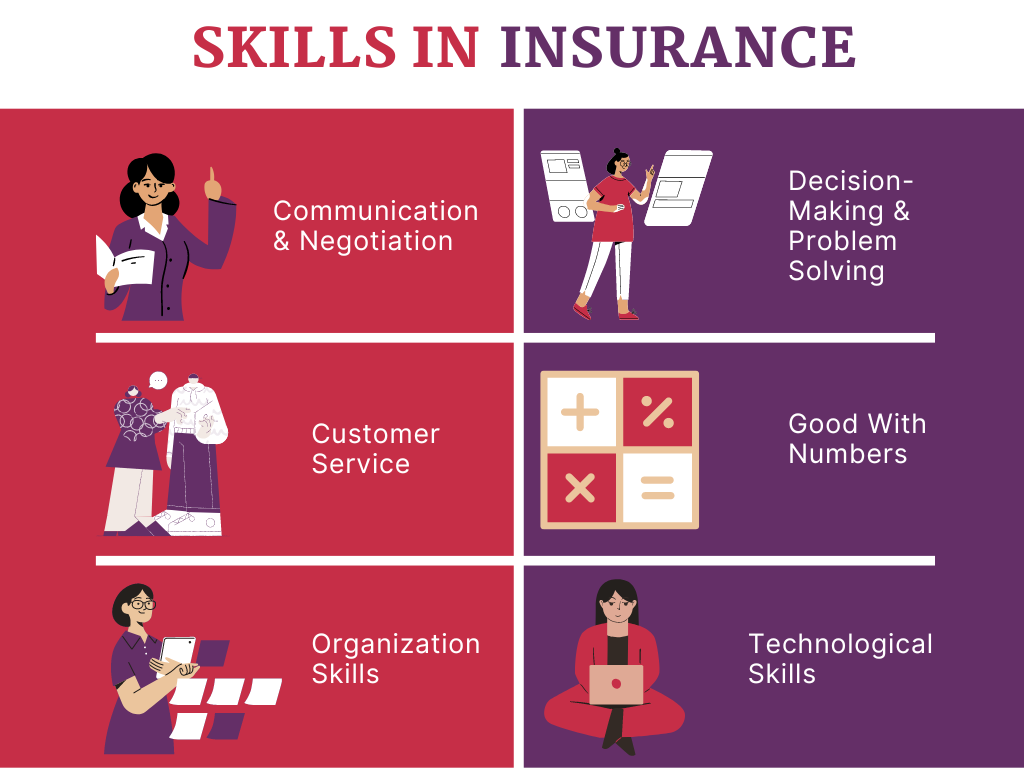Insurance Careers: Unlock Opportunities in a Growing Industry
Insurance Careers are thriving as the industry adapts to meet the changing needs of a diverse and aging population. With approximately 2.9 million people employed in insurance roles in the United States, there are abundant insurance job opportunities available for both newcomers and seasoned professionals. As we recognize Insurance Careers Month, it’s essential to highlight the various paths within the insurance sector, including careers in risk management and emerging roles driven by technological advancements. The ongoing recruitment efforts, particularly through initiatives like the HBCU insurance initiative, aim to attract a broader talent pool to this dynamic field. As the landscape evolves, the insurance industry remains a cornerstone of economic stability, offering fulfilling careers that contribute significantly to society.
The realm of insurance professions presents a wealth of prospects for those seeking a rewarding career path. Known for its extensive range of job roles, the insurance sector encompasses everything from risk assessment and management to innovative positions in data analysis and technology. As the industry embraces change, it opens the door for new talent, particularly during significant recruitment periods such as Insurance Careers Month. With a commitment to diversity and inclusion, initiatives targeting historically Black colleges and universities (HBCUs) are pivotal in bridging the talent gap in this essential field. Consequently, careers in insurance not only promise personal growth but also the opportunity to make a meaningful impact on the economy and communities.
The Growing Demand for Insurance Job Opportunities
As the U.S. population transitions into an aging demographic, the demand for insurance job opportunities is rapidly increasing. With approximately 4.1 million Americans turning 65 this year alone, the insurance industry is presented with a unique challenge and opportunity. This demographic shift means that many seasoned professionals are retiring, leaving a significant gap in the workforce. For individuals at the start of their careers or those looking to switch paths, this creates an enticing landscape filled with potential for growth and stability.
The insurance sector, employing around 2.9 million people, is not just about traditional roles anymore. As the industry evolves, new job opportunities emerge in various fields, including technology, data analysis, and customer service. This diversification means that there are positions available for individuals with varying skill sets, making it an attractive option for job seekers from all backgrounds. Companies are actively seeking fresh talent to fill these roles, and the current competitive labor market only intensifies the need for innovative and skilled professionals.
Exploring Careers in Risk Management
Careers in risk management are becoming increasingly vital as organizations seek to navigate the complexities of modern business environments. Risk management professionals play a crucial role in identifying, assessing, and mitigating risks that could adversely affect a company’s operations and reputation. With advancements in technology and analytics, the need for skilled individuals who can interpret data and develop strategic solutions is more significant than ever. This trend emphasizes the importance of continuous learning and adaptation within the industry.
Moreover, risk management careers offer diverse pathways, from traditional insurance roles to specialized positions in cybersecurity, compliance, and crisis management. As businesses face an array of challenges—from natural disasters to cyber threats—the demand for risk management experts continues to grow. For aspiring professionals, this field not only promises a rewarding career but also the chance to contribute to the overall stability and success of organizations across various sectors.
Insurance Careers Month: A Call to Action
Insurance Careers Month serves as an essential initiative to highlight the vast array of career opportunities within the insurance industry. Each February, organizations across the nation promote awareness and engagement among potential job seekers, emphasizing the many roles available—from actuaries to data scientists. This month-long campaign acts as a reminder of the industry’s commitment to recruiting and retaining talent, and underscores the message that a career in insurance is both fulfilling and critical to economic growth.
As part of this initiative, events such as the Emerging Leaders Conference provide invaluable networking opportunities and professional development resources for young professionals. By bringing together industry leaders and emerging talent, these events foster connections and mentorship, paving the way for the next generation of insurance professionals. Insurance Careers Month not only raises awareness but also inspires individuals to explore the dynamic and diverse opportunities available in the field.
The HBCU Insurance Initiative: Bridging the Talent Gap
The HBCU Insurance Initiative is a targeted effort to recruit students from historically Black colleges and universities into the insurance industry. By focusing on this underrepresented demographic, the initiative aims to bridge the talent gap and create a more diverse and inclusive workforce. This program highlights the importance of representation within the insurance sector, providing students with access to mentorship, internships, and job placement opportunities.
Through partnerships with organizations like the Black Insurance Industry Collective, the initiative fosters a supportive environment for Black students pursuing careers in insurance. By offering educational resources and networking opportunities, the HBCU Insurance Initiative not only prepares students for successful careers but also empowers them to become leaders in the industry. Such programs are essential for cultivating a diverse pipeline of talent that reflects the communities they serve.
The Role of Mentoring in Insurance Careers
Mentoring plays a pivotal role in developing talent within the insurance industry, particularly for those from underrepresented backgrounds. Programs like the Insurance Industry Charitable Foundation’s Mentoring Alliance aim to connect emerging leaders with experienced professionals who can provide guidance and support. These relationships are essential for fostering a sense of belonging and helping mentees navigate their careers in a competitive landscape.
Effective mentoring not only aids in skill development but also enhances retention rates within the industry. By pairing emerging talent with relatable mentors, organizations can create a nurturing environment that encourages growth and success. As the insurance sector faces an increasing demand for skilled professionals, investing in mentoring programs becomes crucial for maintaining a robust and diverse workforce.
Innovations Shaping the Future of Insurance Careers
The insurance industry is undergoing a transformative phase, driven largely by technological advancements and innovations. From the integration of artificial intelligence to the use of big data analytics, the landscape of insurance careers is evolving rapidly. These innovations not only streamline processes but also create new job roles that require a unique blend of technical skills and industry knowledge.
As companies embrace these changes, they seek individuals who are adaptable and willing to learn. Careers that once focused primarily on traditional roles are now expanding to include positions in tech and analytics, offering exciting prospects for professionals looking to enter the industry. By staying ahead of these trends, job seekers can position themselves as valuable assets in the ever-evolving insurance landscape.
The Importance of Diversity in the Insurance Workforce
Diversity within the insurance workforce is essential for fostering innovation and addressing the needs of a broad customer base. As the industry continues to evolve, the necessity for varied perspectives and experiences has become increasingly clear. Companies that prioritize diversity not only enhance their decision-making processes but also improve their overall performance and customer satisfaction.
Initiatives aimed at increasing diversity, such as the aforementioned HBCU Insurance Initiative and the Black Insurance Industry Collective, play a crucial role in reshaping the insurance workforce. By actively recruiting and supporting individuals from diverse backgrounds, the insurance industry can build a more inclusive environment that reflects the society it serves. This commitment to diversity is vital for ensuring the industry’s sustainability and relevance in a rapidly changing world.
Career Development Opportunities in Insurance
The insurance industry offers a wealth of career development opportunities, making it an attractive field for professionals seeking long-term growth. With numerous paths available, including specialized training programs and certifications, individuals can continuously enhance their skills and advance their careers. Organizations often support their employees’ growth through professional development initiatives, ensuring they remain competitive in a dynamic job market.
Moreover, the emphasis on continuous learning within the insurance sector encourages professionals to stay updated on industry trends and best practices. This culture of development not only benefits individual employees but also strengthens organizations as they adapt to changing market conditions. By investing in their workforce, companies can cultivate a team of knowledgeable and skilled professionals ready to tackle the challenges of the future.
The Future of Insurance Recruitment Strategies
As the insurance industry faces a competitive labor market, innovative recruitment strategies are essential for attracting top talent. Companies are now leveraging social media, online platforms, and targeted outreach programs to connect with potential candidates, particularly younger job seekers. This shift in recruitment tactics is crucial for engaging the next generation of insurance professionals who are looking for fulfilling and impactful careers.
Additionally, collaboration between educational institutions and insurance organizations has become a key strategy in recruitment efforts. By offering internships, co-op programs, and scholarships, companies can create a direct pipeline of talent while providing students with practical experience in the field. These strategies not only enhance recruitment but also ensure a diverse and skilled workforce ready to meet the evolving needs of the insurance industry.
Frequently Asked Questions
What are the main job opportunities available in insurance careers?
Insurance careers offer a wide range of job opportunities including roles such as actuaries, underwriters, claims adjusters, risk managers, data analysts, and marketing professionals. With the ongoing recruitment in the insurance industry, there are abundant positions available for individuals interested in pursuing a career in insurance.
How does the insurance industry recruitment process work?
The insurance industry recruitment process typically involves various steps including job postings, resume screenings, interviews, and assessments. Many companies participate in initiatives like Insurance Careers Month to attract talent, ensuring that potential candidates are well-informed about the diverse career paths available within insurance.
What skills are important for careers in risk management?
Careers in risk management require a mix of analytical skills, problem-solving abilities, attention to detail, and strong communication skills. Professionals should also be adaptable and willing to embrace continuous learning, particularly with advancements in technology such as generative AI that are shaping the industry.
What is Insurance Careers Month and how does it benefit job seekers?
Insurance Careers Month is an initiative aimed at raising awareness of the diverse career opportunities within the insurance industry. It features events, networking opportunities, and resources for job seekers, helping them explore various roles and connect with industry professionals to enhance their career prospects.
How does the HBCU insurance initiative support aspiring insurance professionals?
The HBCU insurance initiative, known as I.M.P.A.C.T, focuses on recruiting students from historically Black colleges and universities into the insurance industry. It provides mentorship, networking opportunities, and educational resources to help students build successful careers in insurance and risk management.
What are the benefits of pursuing a career in insurance?
Pursuing a career in insurance offers numerous benefits including job stability, diverse career paths, opportunities for advancement, and the chance to make a significant impact on the economy. The industry is continuously evolving, providing professionals with the chance to be at the forefront of innovative solutions in risk management.
How can emerging leaders advance their insurance careers?
Emerging leaders can advance their insurance careers by participating in professional development events, such as the Emerging Leaders Conference, and seeking mentorship through programs like the IICF Mentoring Alliance. Building a strong professional network and continuously enhancing skills are also crucial for career growth in the insurance sector.
What challenges does the insurance industry face in talent retention?
The insurance industry faces challenges in talent retention due to a competitive labor market. Companies are focusing on developing their workforce by providing ongoing training, mentorship, and career development opportunities to ensure that skilled professionals remain engaged and satisfied in their roles.
What types of scholarships are available for students interested in insurance careers?
Various scholarships are available for students interested in insurance careers, particularly through initiatives like those promoted by the Insurance Council of Texas Education Foundation. These scholarships aim to support students pursuing education in property and casualty insurance, fostering a diverse and skilled workforce in the industry.
How is technology transforming insurance careers?
Technology is transforming insurance careers by introducing advancements such as generative AI and data analytics, which enhance the efficiency and effectiveness of risk management processes. Professionals in the insurance sector must adapt to these technological changes, making continuous learning essential for career progression.
| Key Point | Details |
|---|---|
| Industry Employment | The insurance industry employs about 2.9 million people in the U.S. |
| Demographic Shift | As the U.S. population enters ‘Peak 65’, about 4.1 million Americans will turn 65 this year, creating opportunities in insurance careers. |
| Career Opportunities | Insurance careers include roles from actuaries to drone pilots, highlighting a diverse range of skills needed. |
| Recruitment Initiatives | Programs like the HBCU I.M.P.A.C.T Initiative aim to recruit diverse talents into the insurance industry. |
| Mentorship Programs | The IICF Mentoring Alliance pairs emerging leaders with mentors to enhance retention and professional growth. |
| Emerging Leaders Conference | The sixth annual conference connects young professionals with leaders in the industry for networking and development. |
| Challenges in Talent Retention | The insurance industry faces a competitive labor market, making talent retention a priority. |
Summary
Insurance Careers present a wealth of opportunities as the industry navigates through a significant demographic shift with the aging population. With millions of Baby Boomers retiring, there is a growing demand for skilled professionals in various roles—from actuarial science to risk management. Insurance Careers Month serves as a vital reminder of the diverse career paths available in this field, underscoring the industry’s role as a cornerstone of economic stability. Initiatives aimed at recruitment, mentorship, and professional development highlight the importance of fostering a diverse workforce, ensuring that the insurance industry continues to thrive in the face of evolving challenges.







